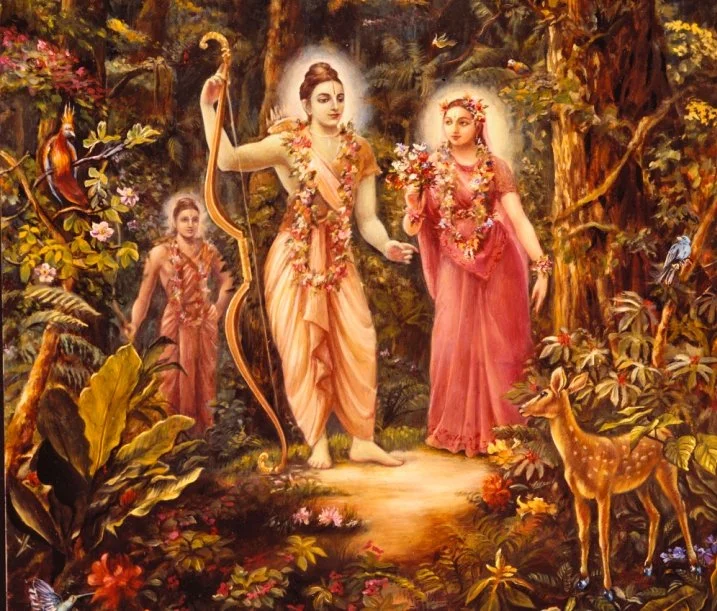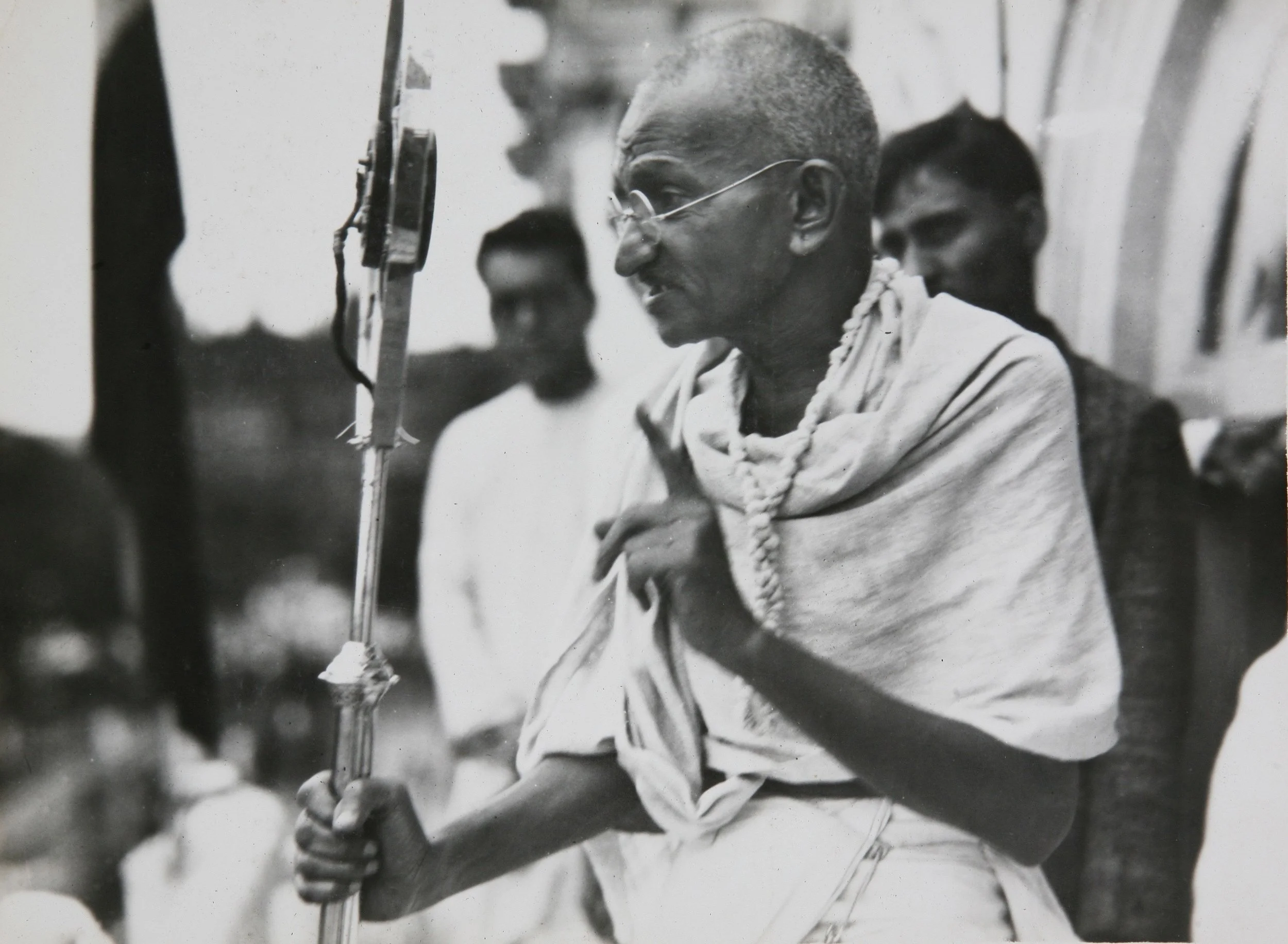Celebrating True Diwali - Seeking the Light Within
A Look Back In History
It was November 1947. A prayer meeting was held. A large crowd gathered around, joyous and ready to celebrate. It was the first Diwali for an independent India, after being freed from the tyrannical rule of the British. The crowd watched in awe, as the man who led their freedom movement walked slowly on to the stage. With his frail body but strong heart, Mahatma Gandhi came to the microphone.
In his soft voice, he spoke boldly - “Only those who have Rama within can celebrate this victory. For, He alone can illumine our souls and only that light is real light.”
But how do those words ring in our minds today? What do they mean in our lives as we approach the holiday?
Diwali - What Is It?
Diwali, commonly known as the festival of lights, is celebrated by more than a billion people across the globe. Primarily considered a Hindu holiday, Diwali is also celebrated by Buddhists, Sikhs and Jains.
Though based in a religious system, Diwali’s significance and essence are nonsecular at the core and thus celebrated by many from all different backgrounds.
Diwali is said to be the day Lord Rama, Queen Sita, his wife, Lakshman, his brother and Hanuman, his devotee, returned to their kingdom of Ayodhya, after being in exile for 14 years. According to the oldest epic in human history, the Ramayana, Lord Rama, considered to be a manifestation God by many, was exiled to the forest despite Rama being the most beloved by all people in the kingdom. After defeating the evil king, Ravana of Lanka, and saving a kidnapped Sita, Rama returned to Ayodhya. It is said the people of Ayodhya were awaiting all 14 years to see their king return. Joyous and thrilled, the citizens of Ayodhya lighted candles or diyas celebrating the return of righteousness, happiness and spiritual Truth in their lives - Lord Rama.
Diwali is also celebrated in many different ways throughout the subcontinent and the world outside of it. Typically, it is celebrated as a five-day festival. The first day - Dhanteras - is celebrated to worship wealth and money. The second day is commonly known as Kali Chaudas, or the celebration of true spiritual energy and power, manifested in all of nature and humans. The third day is the day of Diwali itself. The fourth day is celebrated differently in different parts of India - while some celebrate it as a new year, as it is the first day of the luni-solar calendar, others like farmers celebrate it as a day of Govardhan Puja or worship of nature and the mountains that protect and sustain. The final day is typically known as Bhai Duj, celebrating the brother-sister bond - sisters invite their brothers for dinner.
Diwali’s historical, religious and celebratratory significance was represented in synopsis but at the core - there’s more to it. Beyond the lavish parties, tasty food, delicious sweets, expensive gifts, big temple rituals, family events and traditions, Diwali truly has only purpose - to look within.
Diwali - Gandhi’s Words
During the time of Gandhi’s Diwali speech, one can clearly understand there the Mahatma was frustrated more than joyous, straightforward and honest.
It was a time of great division in the Indian subcontinent - the Partition of India and Pakistan. Countless riots were breaking out at the border and despite the attempt of some to unite the broken nation, division seemed inevitable.
During this time of freedom from the British, Gandhi’s celebration was bittersweet. While his nation was free, his people were divided. While he was able to kindle the fire for freedom in his people, they didn’t seem to understand what freedom truly meant.
He didn’t feel Diwali was a time to celebrate but a time to think.
“It is the duty of everyone to banish hatred and suspicion from his heart in order to establish peace and goodwill in the country,” he said. “... you do not feel the presence of God within you and do not forget your petty internal quarrels!”
Gandhi and some like minded spiritual minds and freedom fighters understood the real significance of Diwali.
“Crowds of people go to see artificial illumination but what we need today is the light of love in our hearts. We must kindle the light of love within,” he said.
Diwali is the return of Rama not merely in Ayodhya but in our lives. Rama, seen as God or not, was a manifestation of truth, honesty, sincerity, compassion and sacrifice.
Whether it was compassion for an enemy and his people, the sacrifice of personal comfort and power for the wellbeing of his family and kingdom, true love and unity with his beloved, strength against the tyrannical or the upliftment of the fallen and outcast, Rama manifested it all. Rama didn’t love. Rama was love.
Rama didn’t unify. Rama was unity. Rama didn’t act selflessly. Rama was selflessness.
Diwali is not a time to celebrate lights - but a time to seek the light within, already present. It’s a time to question - Rama may have returned to Ayodhya, but where is He in my life?
In Gandhi’s world, that manifested through the world of an India he was living in - a free yet disunited India. He saw the lack of Rama, the manifestation of true compassion and peace, in his nation, and thus questioned the light of Diwali had to reignited.
Diwali In Our Lives
In a similar light, no pun intended, Diwali is a time to see the world we are a part of and the world within us - is the light of Rama present?
Do I see injustice by the wealthy against the poor in my world? Then - how can I truly ignite worship of wealth this Diwali?
Do I see power being corrupted and abused by some in the world I live in? Then how should I worship power this Diwali?
Do I see the careless destruction and misuse of the environment which sustains me? Then how should I worship the mountains and nature this Diwali?
Do I see the blatant disrespect and oppression of certain genders and races in my world? Then how should I celebrate my sisters and brothers this Diwali?
More importantly, am I the human being I want to be? The ideals of compassion, selflessness, gratefulness and sacrifice - am I that? Beyond yoga of physical exercises and deep breathing, do I perform the yoga of devotion, love and egoless service?
Diwali is not merely a time to celebrate the past and look forward to the future. It is a time for the present - the Now!
How can I be aware and mindful of my present moments and actions? How will I change my present to be the ideal?
For the true celebrators of Diwali, it is a time to seek the deeply intrinsic, spiritual power within - to introspect. It is time to take a step closer to the real light - the source within us, our very nature.
In the words of the Mahatma, this Diwali - “May Rama illuminate your hearts so that you can serve not only each other...but the whole world.”




